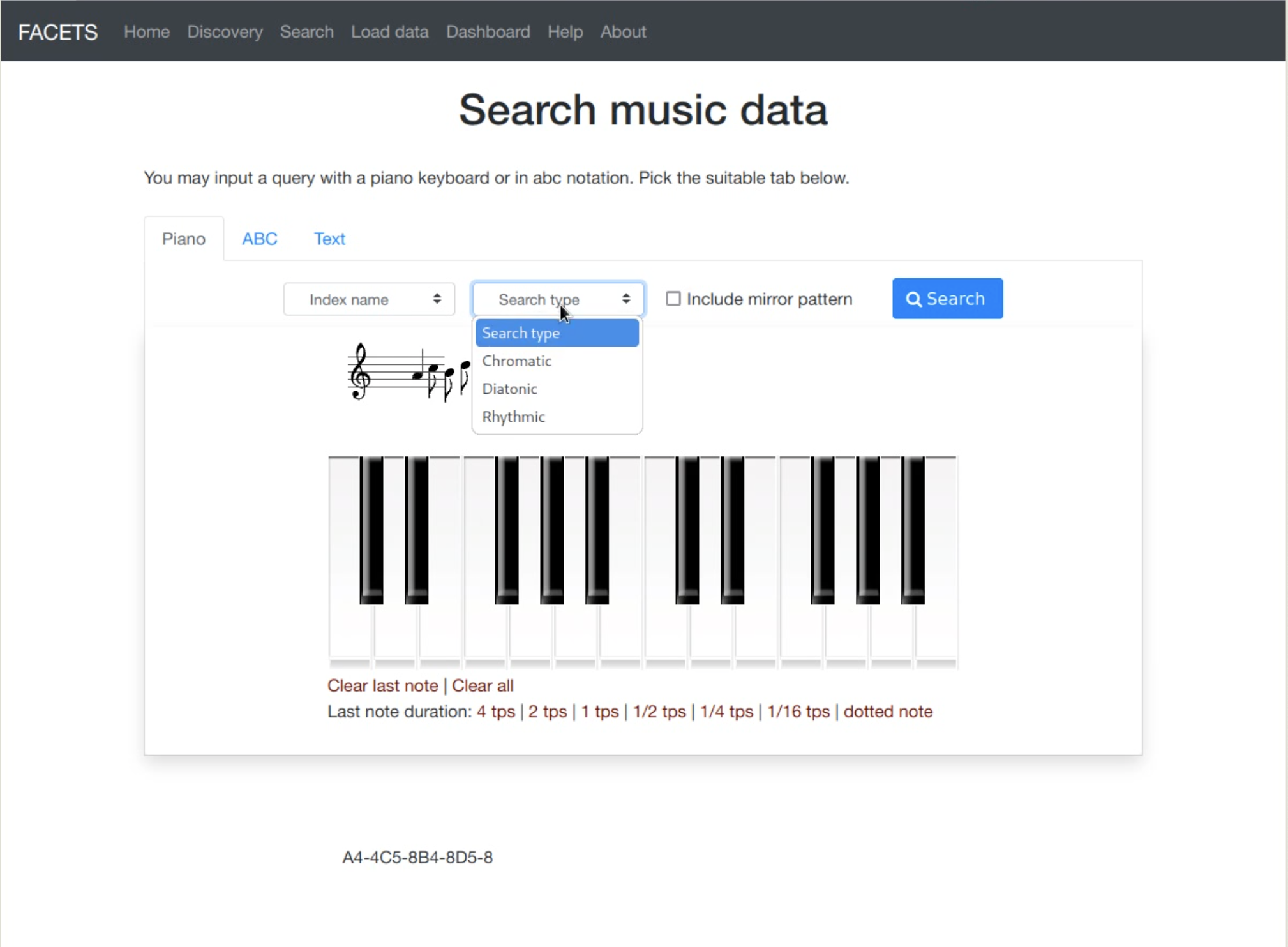Tutorial: explore large collections of music scores with the FACETS tool
Music libraries currently lack well-founded information retrieval tools. While it is relatively easy to find music based on metadata, content-based music retrieval still remains as a challenge. The Polifonia FACETS pilot aims to tackle this challenge by building a faceted search engine (FSE) for large collections of music documents.

Music libraries currently lack well-founded information retrieval tools. While it is relatively easy to find music based on metadata, content-based music retrieval still remains as a challenge. The Polifonia FACETS pilot aims to tackle this challenge by building a faceted search engine (FSE) for large collections of music documents.

The tool will be able to support exploring and discovering documents of interests based on a combination of musical features (such as melodic, harmonic or rhythmic patterns), metadata (authors, form, instrumentation) and all kinds of annotations. The key feature is the search interface where you can enter your melodic or rhythmic query, instead of a ‘keyword’ – something we usually enter in search engines. Pilot leader Raphaël Fournier-S’niehotta explains how this works in our newest tutorial video:
The FACETS tool is built by developers from the French National Conservatory of Arts and Crafts (CNAM) and is still in a demo phase. It will be extensively tested by music researchers, and was also evaluated in a testing round by Polifonia team members during our recent meet up in Bologna. Feedback was given on the functionalities and user friendliness. In the next months the team will work on the improvements and will release a version where users will also be able to upload their own sheet music into this search engine.










